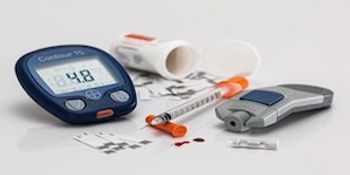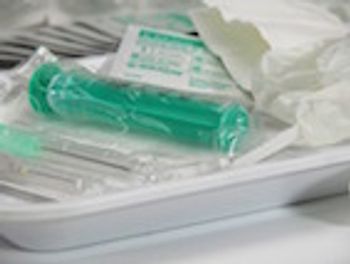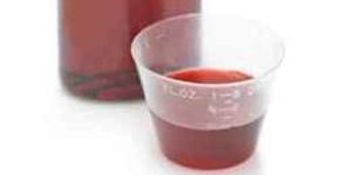
Hospital pharmacy directors say that providing appropriate and safe drug therapy has become extremely challenging during shortages and has led to numerous instances of compromised care, potentially harmful errors, and unsafe practices.

Hospital pharmacy directors say that providing appropriate and safe drug therapy has become extremely challenging during shortages and has led to numerous instances of compromised care, potentially harmful errors, and unsafe practices.


Changes in the position and orientation of bar codes on products are resulting in scanning difficulties.

Several new devices for the administration of inhaled medications have been introduced.

Medication errors have occurred at least once in community pharmacies in the United States. They will happen again, perhaps where you work.

Those who teach patients with diabetes about insulin must be aware of an unusual situation that can happen when using insulin pens with automatic needle retraction devices.

These medication errors have occurred at least once in community pharmacies in the United States.

We have published cases of medications dispensed before they were reconstituted, particularly unmixed antibiotics.

Advances in immunization technology and knowledge of diseases have led to an ongoing stream of new vaccines.

Two fixed-ratio combination insulin/glucagon-like peptide-1 receptor agonists have been approved by the FDA.

The following medication errors have occurred at least once, and they will happen again—perhaps where you work

The risk of 10-fold overdoses is increased by health professionals and computer systems that dangerously use trailing zeros.

Since September 2012, the Institute for Safe Medication Practices has been operating the ISMP National Vaccine Errors Reporting Program to collect data about the types of vaccine errors and their underlying causes.

The following medication errors have occurred in community or ambulatory practice sites at least once, and they will happen again—perhaps where you work.

Read about potential safeguards and other strategies recommended by the Institute for Safe Medication Practices.

Consumers sometimes report to Institute for Safe Medication Practices that their pharmacy dispensed fewer tablets or capsules than prescribed when filling their prescriptions.

Several medications are available on the market with names that begin with “Depo-,” meaning they are administered via a depot injection that deposits the drug into localized tissue from which it is gradually absorbed by surrounding tissue.

The medication errors discussed here have occurred in community or ambulatory practice sites at least once. They will happen again—perhaps where you work.

For many, the holidays will include joyous gatherings. However, holiday cheer will quickly fade if a child gets into unsecured medications and requires a trip to the emergency department.

Confirmation bias likely played a role in a recent pharmacy admixture error.

These medication errors have occurred in community or ambulatory practice sites at least once, and they will happen again.

The ability to view and assess alerts that may have been bypassed by other staff during order entry and drug utilization review may not be available to pharmacists in some pharmacy computer systems.

Giving a correctly dispensed prescription to the wrong patient is a common error in community pharmacies.

The Institute for Safe Medication Practices has received numerous reports involving the dispensing of unmixed oral suspensions, particularly unmixed antibiotics, to patients.

Although the subject of oral methotrexate overdoses due to accidental daily instead of weekly dosing is not new, it is worth repeating.

Flecainide is an oral class 1c antiarrhythmic drug that may be used to treat atrial fibrillation or supraventricular tachycardia, particularly when conventional treatment agents fail.

Problems may arise during electronic communication because of similarities in appearance among the alphanumeric symbols we use.

When patients report medication errors to the ISMP that involve pharmacy dispensing, they are usually more upset about the response, or lack of response, from the pharmacist or pharmacy management than with the error itself.

Recently, a pharmacy filled a prescription for guaifenesin with codeine cough syrup with an error in the patient instructions.

The Institute for Safe Medication Practices received a report from a long-term care pharmacy that discovered administration errors at 2 of the LTC facilities it serviced.